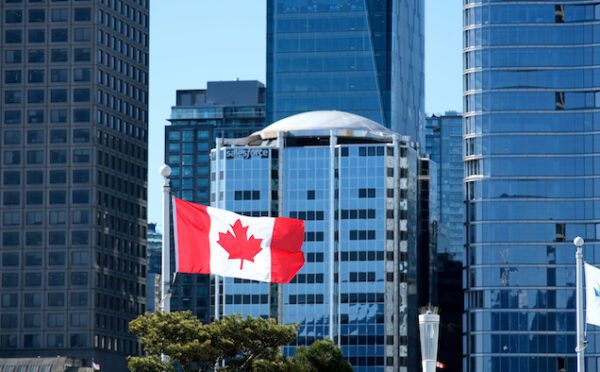
On March 29, 2021, the Canadian Securities Administrators (CSA) and the Investment Industry Regulatory Organization of Canada (IIROC) jointly published Staff Notice 21-329 Guidance for Crypto-Asset Trading Platforms: Compliance with Regulatory Requirements (the Staff Notice). The Staff Notice provides additional guidance for Canadian and foreign crypto asset trading platforms (CTPs) regarding the application of Canadian securities laws to their operations, and states that CTPs are required to register as investment dealers and be regulated as marketplaces. To further emphasize this point, the Ontario Securities Commission (the OSC) has imposed a deadline of April 19, 2021 for CTPs that offer services to Ontario residents to contact the OSC to discuss how to bring their operations into compliance.
Application of securities laws to crypto asset trading platforms
The Staff Notice asserts that businesses facilitating trades involving crypto assets may be CTPs and subject to Canadian securities regulatory requirements in two ways. First, the Staff Notice indicates that businesses that facilitate trading in “cryptoassets that are securities,” which the Staff Notice defines as “Security Tokens,” are CTPs subject to Canadian securities laws. The Staff Notice does not elaborate on what cryptoassets are considered securities under Canadian securities laws, but the CSA’s previous guidance on token offerings is consistent with the view of the U.S. Securities and Exchange Commission (the SEC) that most token offerings are subject to securities laws, as discussed in our Osler Update, “Canadian securities regulators publish further guidance on token offerings.” Generally, regulatory uncertainty has led Canadian CTPs to offer a very limited selection of tokens to Canadian investors.
Second, the Staff Notice states that businesses that facilitate trading in “instruments or contracts involving crypto assets, as indicated in CSA Staff Notice 21-327,” which the Staff Notice defines as “Crypto Contracts,” are also CTPs subject to Canadian securities laws. In January 2020, CSA Staff Notice 21-327 stated that custodial platforms that facilitate trading bitcoin and other crypto assets that are commodities (and not securities or derivatives), may be subject to securities legislation because the customer’s contractual right to the crypto asset is a security or derivative, as discussed in our Osler Update, “CSA issues guidance that securities legislation likely applies to custodial cryptoasset trading platforms.” In other words, even CTPs that trade bitcoin are subject to Canadian securities laws if they provide custody and do not make “immediate delivery” of digital asset to clients. However, over-the-counter (OTC) trading desks that immediately deliver cryptoassets to a wallet address owned and controlled by the purchaser will not be required to register, unless they are dealing in Security Tokens.
The Staff Notice also reminds platforms that facilitate trading in “traditional” derivatives that provide exposure to crypto assets, such as futures, contracts for differences and swaps, that they are subject to CSA jurisdiction.
Regulatory requirements
The Staff Notice indicates that CTPs that facilitate trading in Security Tokens or Crypto Contracts will need to register as dealers (Dealer Platforms). Although the Staff Notice identifies certain limited situations where Dealer Platforms may be permitted to register as restricted dealers or exempt market dealers, the Staff Notice indicates Dealer Platforms that accept retail clients will generally be required to register as investment dealers and become IIROC members.
In addition, CTPs that automatically match buy and sell orders for Security Tokens or Crypto Contracts will be regulated as marketplaces under securities laws (Marketplace Platforms). Many CTPs that offer fiat-to-crypto or crypto-to-crypto exchange services are likely to be characterized as both a Dealer Platform and a Marketplace Platform.
Transition period
The Staff Notice offers a two-year transition period (the interim period) in which a CTP can register as a restricted dealer with the CSA while working toward IIROC membership, provided that it does not offer leverage or margin trading. While operating under restricted dealer registration, CTPs may need to limit the number and types of products traded, the number and types of clients and the amount invested by clients. For example, clients of Wealthsimple Digital Assets, currently the only CTP registered as a restricted dealer, permits clients to invest a maximum of C$30,000 in crypto in a 12-month period.
During the interim period, IIROC staff intends to work with CTPs to accommodate their innovative business models by adopting flexible standards for safeguarding assets, fair pricing, market surveillance and independent systems reviews that achieve the core investor protection and market integrity objectives of securities laws. A key task for IIROC will be to figure out how CTPs fit into the Canadian Investor Protection Fund (the CIPF), which provides up to C$1 million of insurance for client accounts of all registered investment dealers.
The Staff Notice outlines different approaches within the CSA during the interim period. The regulators in New Brunswick, Nova Scotia, Ontario and Quebec will require CTPs to register as dealers and be regulated as marketplaces, while the regulators in Alberta, British Columbia, Manitoba and Saskatchewan will consider other regulatory approaches, as warranted. This distinction may not have much practical effect because CTPs will likely pursue a regulatory path that allows them to service clients across Canada.
Scope for regulatory flexibility
While IIROC staff indicates their intention to be flexible when applying certain rules to CTPs, the Staff Notice does not convey flexibility regarding core registration requirements, such as audited financial statements, minimum regulatory capital, insurance in the form of a financial institution bond and a chief compliance officer and dealing representatives with relevant experience in the securities industry and successful completion of securities exams. We are optimistic that the CSA will give some leeway for CTPs to attain compliance with these standards, but applications for discretionary exemptive relief will likely be required.
Implications for foreign platforms
The Staff Notice reiterates CSA members’ position that securities legislation applies to non-Canadian CTPs when dealing with Canadian clients and warns that the CSA may take new enforcement actions or continue enforcement actions against CPs that are not in compliance with Canadian securities legislation.
Conclusion
The Staff Notice provides a reasonable amount of regulatory clarity to CTPs, which have been operating with uncertainty since March 2019. However, this clarity comes with high compliance costs, as most CTPs will need to apply for discretionary exemptive relief from the prospectus requirement and derivatives trade reporting requirements for the Crypto Contracts traded on their platforms, certain marketplace regulation requirements and, for some CTPs in some jurisdictions, clearing agency requirements. These multiple layers of regulation and varied approaches taken across Canada mean the CTPs should be prepared for high registration costs and lengthy negotiations with CSA staff during the interim period. And that is just the beginning for CTPs that want to deal with retail investors and therefore have two years to graduate to IIROC.

